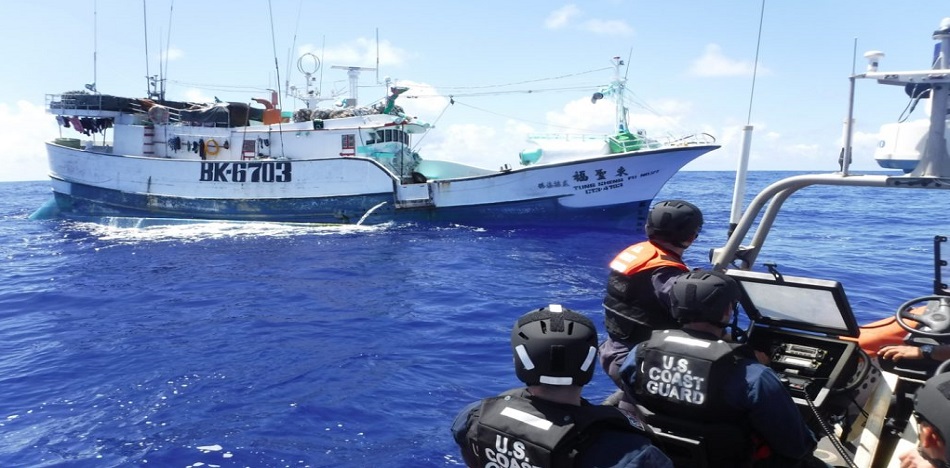
Spanish – At least 340 clandestine ships of Chinese origin arrived in the Pacific to plunder its maritime resources, violating international norms. The fishing boats turned off their radars and tracking systems to avoid detection, which is an illegal act of what would be this parallel navy of the Chinese regime.
A few days ago, the United States reported that 300 Chinese cargo ships were off the Peruvian coast engaged in illegal fishing and that they could damage not only the environment but also the economy. The NGO Oceana, which is dedicated to monitoring the seas, warned that the illegal fleet is at the edge of the Exclusive Economic Zone (EEZ) of Peru and 400 nautical miles northeast of the EEZ of Chile. The fleet consists of 340 boats that left the Galapagos zone to continue their route through South America.
El Servicio de la Guardia Costera de Estados Unidos está combatiendo la pesca ilegal en todo el mundo con una nueva estrategia que exige una aplicación de la ley y una mayor cooperación internacional. https://t.co/CSSJPZZPWg pic.twitter.com/tTEK8WIjT7
— Embajada EEUU Perú (@USEMBASSYPERU) September 30, 2020
“According to the latest data, we can see that the number of boats decreased from 300 to 126. We know that these boats did not disappear, and we see few of them leaving the area. The size of this fleet should be cause enough for concern, and even more so when they are probably turning off their automatic identification systems,” said Marla Valentine, illegal fishing and transparency analyst at Oceana’s office in the United States.
No respect for borders
An article in The Epoch Times, published on September 17, stated that these Chinese boats “plundered” squid from the Galapagos, representing 99% of the fishing activity. And according to the index of illegal, unreported, and unregulated fishing (INDNR), China has the worst performance of all countries, with a score of 3.93.
“These boats operate without observers on board. They do not return to port. They transship their catch to mother vessels, which land the catch at ports. So, in a nutshell, they are fishing all the time; the fishing operation doesn’t stop,” Pablo Guerrero, Director of Marine Conservation for WWF Ecuador, told the Guardian.
Overfishing is commonplace for the Chinese Communist Party (CCP). In fact, these unscrupulous practices, coupled with pollution, left the Bohai Sea almost without fish in 2018. Overfishing by Chinese companies has also threatened Africa’s weak economies. In July, it was also revealed that a giant navy of Chinese industrial ships was plundering North Korean waters, causing an unprecedented decline in marine wildlife.
“This is the largest known case of illegal fishing perpetrated by a single industrial fleet operating in another nation’s waters,” Jaeyoon Park, a data scientist from Global Fishing Watch, told NBC News.
 Versión Español
Versión Español













